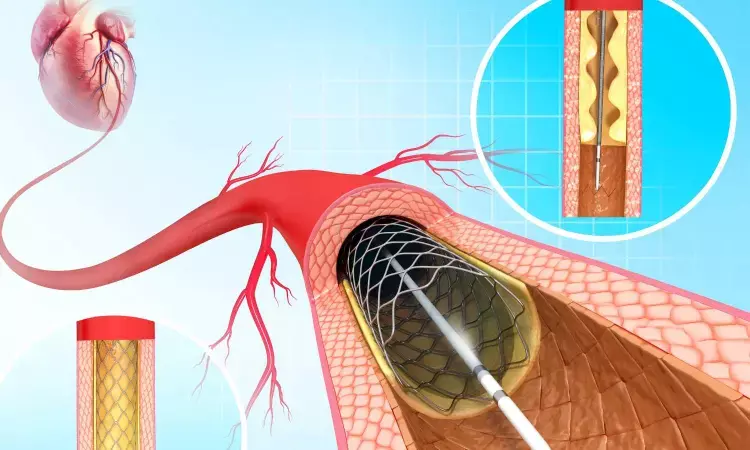- Home
- Medical news & Guidelines
- Anesthesiology
- Cardiology and CTVS
- Critical Care
- Dentistry
- Dermatology
- Diabetes and Endocrinology
- ENT
- Gastroenterology
- Medicine
- Nephrology
- Neurology
- Obstretics-Gynaecology
- Oncology
- Ophthalmology
- Orthopaedics
- Pediatrics-Neonatology
- Psychiatry
- Pulmonology
- Radiology
- Surgery
- Urology
- Laboratory Medicine
- Diet
- Nursing
- Paramedical
- Physiotherapy
- Health news
- Fact Check
- Bone Health Fact Check
- Brain Health Fact Check
- Cancer Related Fact Check
- Child Care Fact Check
- Dental and oral health fact check
- Diabetes and metabolic health fact check
- Diet and Nutrition Fact Check
- Eye and ENT Care Fact Check
- Fitness fact check
- Gut health fact check
- Heart health fact check
- Kidney health fact check
- Medical education fact check
- Men's health fact check
- Respiratory fact check
- Skin and hair care fact check
- Vaccine and Immunization fact check
- Women's health fact check
- AYUSH
- State News
- Andaman and Nicobar Islands
- Andhra Pradesh
- Arunachal Pradesh
- Assam
- Bihar
- Chandigarh
- Chattisgarh
- Dadra and Nagar Haveli
- Daman and Diu
- Delhi
- Goa
- Gujarat
- Haryana
- Himachal Pradesh
- Jammu & Kashmir
- Jharkhand
- Karnataka
- Kerala
- Ladakh
- Lakshadweep
- Madhya Pradesh
- Maharashtra
- Manipur
- Meghalaya
- Mizoram
- Nagaland
- Odisha
- Puducherry
- Punjab
- Rajasthan
- Sikkim
- Tamil Nadu
- Telangana
- Tripura
- Uttar Pradesh
- Uttrakhand
- West Bengal
- Medical Education
- Industry
Depression lowers medications adherence after percutaneous coronary intervention: JAMA

USA: Patients with depression are less likely to achieve adherence to essential medical therapies following PCI (percutaneous coronary intervention) compared to those without depression, states a recent study published in JAMA Network Open.
"Depression recognition may ease targeted interventions to address medication adherence and improve secondary cardiovascular disease prevention," the authors wrote in their study.
By reviewing claims data, researchers evaluated the connection between patients' depression and their medication adherence over 12 months after undergoing PCI-a common procedure to open clogged coronary arteries in and around the heart. The medications prescribed to these patients include beta-blockers, antiplatelets and statins, all proven to reduce the likelihood of another heart attack or cardiovascular event.
Prior research has found that patients with depression have up to a three-fold increased risk of health problems or death after a heart attack than those without depression.
The study examined the records of more than 124,000 patients who underwent PCI and were diagnosed with depression by a medical provider. Magnani and his team used medical claims data incorporating prescriptions filled at pharmacies to track if patients kept up with prescriptions.
Providers know that medication adherence is critical to cardiovascular disease prevention – but it is complex. Social factors, such as having money to cover medication costs or having to choose between medication copayments and household essentials, can affect whether a person can adhere to their medication. Pharmacy access can also be a challenge.
Magnani suggests that providers incorporate depression screenings to develop ways to improve medication adherence and health outcomes for patients with depression.
The study also highlights another known association: A significant proportion of people with coronary artery disease have or will develop depression, and people with depression have a four-fold increased risk of cardiovascular disease.
Study co-author Bruce Rollman, M.D., UPMC endowed chair and professor of medicine at Pitt, has led trials to treat depression following cardiac bypass surgery and after hospital discharge for heart failure.
"This study may help explain why cardiac patients with co-morbid depression tend to have higher rates of hospital readmissions and mortality than non-depressed cardiac patients," Rollman said. "It also points to the need for organized health systems, such as UPMC, to routinely screen for and treat depression to maximize patients' potential benefits from undergoing these high-cost cardiac procedures."
Magnani noted that depression is a common condition, and the study results indicate that providers need to identify and address depression.
"We provide critical and sometimes lifesaving therapies to our patients with heart disease and then prescribe therapies which we know can help them. If depression challenges or reduces their ability to adhere to those medications, it is essential to address depression as part of cardiovascular care and treatment. Our team considers our findings an invitation to develop strategies to recognize depression as part of cardiovascular care," Magnani noted.
Reference:
Lapa, M.E., et al. (2022) Assessment of Depression and Adherence to Guideline-Directed Medical Therapies Following Percutaneous Coronary Intervention. JAMA Network Open. doi.org/10.1001/jamanetworkopen.2022.46317.
Dr Kamal Kant Kohli-MBBS, DTCD- a chest specialist with more than 30 years of practice and a flair for writing clinical articles, Dr Kamal Kant Kohli joined Medical Dialogues as a Chief Editor of Medical News. Besides writing articles, as an editor, he proofreads and verifies all the medical content published on Medical Dialogues including those coming from journals, studies,medical conferences,guidelines etc. Email: drkohli@medicaldialogues.in. Contact no. 011-43720751


